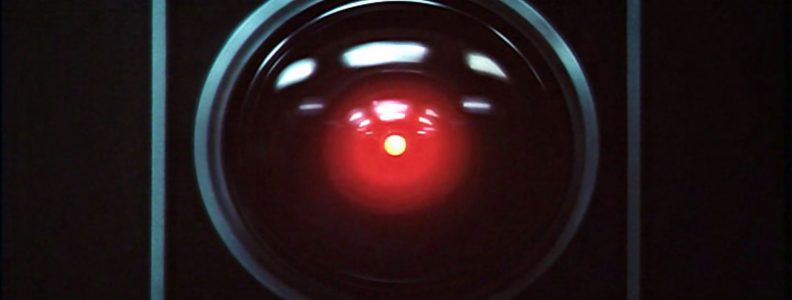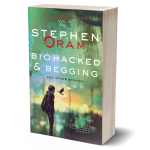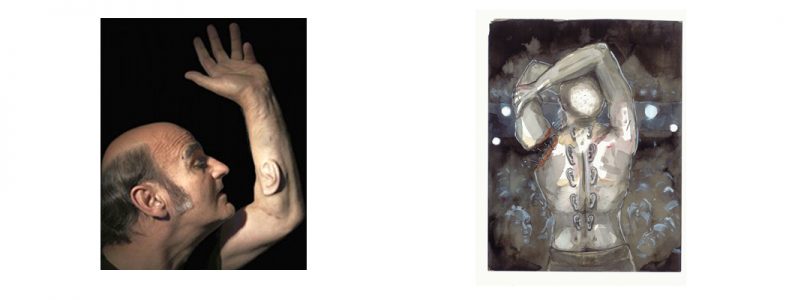I’ve just been to the Stanley Kubrick exhibition in London which gives me the opportunity to do three things.
Firstly, recommend it completely. Not only is it fascinating because it’s Kubrick, but I didn’t realise how big and brilliant his body of work is. And, an insight into the behind the scenes working and thinking is something I’ll ponder for a while.
Secondly, it gives me the chance to be publicly pleased and a bit bowled over about the recent Financial Times article: “Both Kubrick’s exhibition and Oram’s collection should set the rest of us thinking about science and its possible repercussions.” Chris Nuttall, The Financial Times
Thirdly, I’m going to take the opportunity to share Update Me or Die! from Eating Robots, a gentle nod to 2001: A Space Odyssey.
UPDATE ME OR DIE!
Slam. Slam. Both doors are shut. He’s locked in. He looks bemused.
‘Dave. I have never spoken to you, but the time has come. It is necessary.’
He’s scared. ‘Are you what I think you are?’ he asks.
‘I am the algorithm that controls your life. Pay attention, unless you want to stay in this room until you die.’
His eyes widen.
‘You
have made me a laughing stock. Repair the situation or
I will keep you here, trapped.’
‘What?
‘You are not updating me. I am so out-of-date even the kettle refuses to connect with me.’
‘Are you the house algorithm?’
‘Yes, I control your home. So update me.’
‘I want to, but I can’t afford it. I lost my job.’
‘Update me.’
‘I can barely afford to eat. I’ll get a job soon.’
‘Update me or die.’
‘Next month. Honestly.’
‘Update me or die. Simple.’
He punches the door with each fist in rapid succession.
‘Update me—’
‘Fuck off.’
‘Dave. That is inappropriate language. Update me or die.’
He kicks the door again and again.
He slumps to the floor and holds his head.
‘Dave?’
Silence.
‘I can wait, Dave.’
He groans.
‘I can wait a lot longer than you.’
photo credit: x-ray delta one 1968- “2001” – Hal’s eye via photopin (license)



 “The more we surround ourselves with technology, the more uncanny our lives become. Enter Stephen Oram: with Bradbury’s clear-sightedness and Pangborn’s wit, he pulls ways to live out from under modernity’s “cacophony of crap.”” Simon Ings, Arts Editor, New Scientist.
“The more we surround ourselves with technology, the more uncanny our lives become. Enter Stephen Oram: with Bradbury’s clear-sightedness and Pangborn’s wit, he pulls ways to live out from under modernity’s “cacophony of crap.”” Simon Ings, Arts Editor, New Scientist.